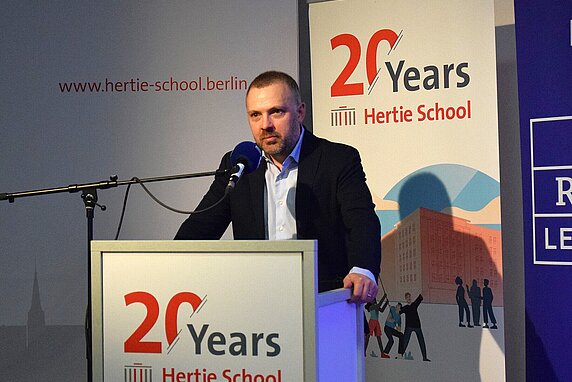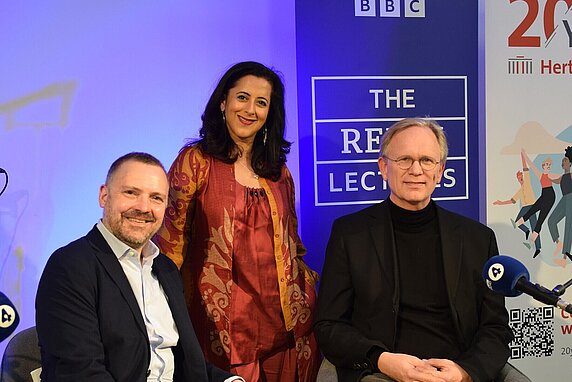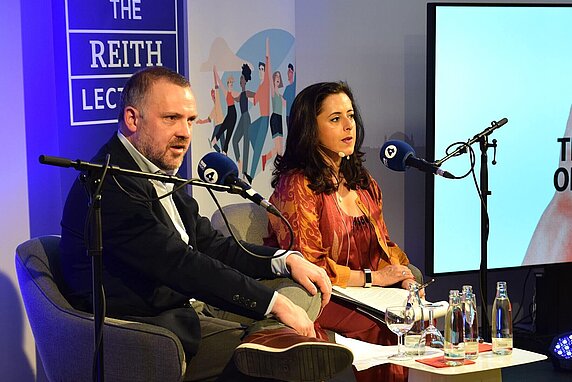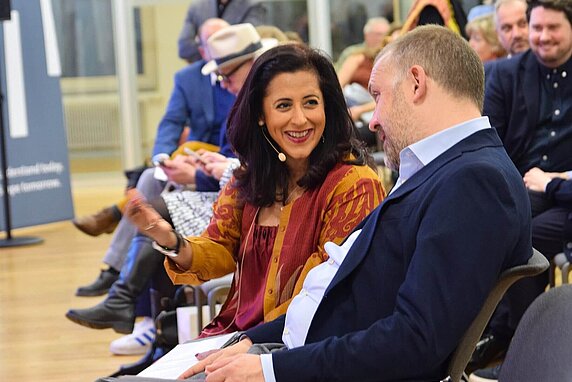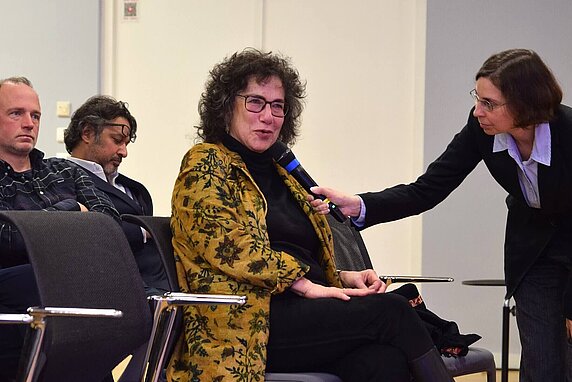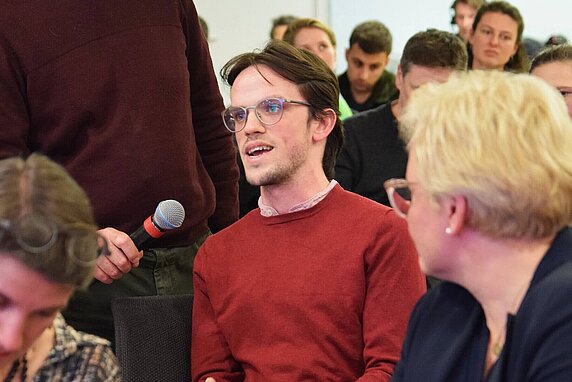Hertie School hosts BBC Reith Lecture “Our Democratic Future” with Ben Ansell.
What does the future hold for our security, and what role does trust play in international relations? Today the BBC aired the second episode of “Our Democratic Future”, a four-part lecture series given by Oxford Professor of Comparative Democratic Institutions Ben Ansell. The lecture, “The Future of Security”, was hosted by the Hertie School.
In this week’s episode, Ansell addressed the issues of anarchy and tyranny, the use of artificial intelligence in ensuring security, and trust among NATO member states. Hertie School Professor of Public Policy Mark Hallerberg delivered the opening remarks, and BBC presenter and journalist Anita Anand moderated the lecture and following question-and-answer session.
Between anarchy and tyranny
According to Ansell, when endeavouring to ensure security for their citizens, states find themselves between the extremes of anarchy and tyranny. Anarchy, Ansell explained, means “an empty world of dashed hopes” because we constantly have to “look over our shoulders” for a possible threat to our safety. He noted that, before the twentieth century, anarchy was the norm throughout the world as “criminal laws were rarely uniformly enforced”. Today this situation is still common for a number of countries around the world, specifically Brazil and Mexico, whose citizens often do not know who they can rely on to keep them safe. “A world of anarchy,” Ansell pointed out, “is not one where no one is enforcing order. It is one where there is no single entity with a monopoly on the use of force”.
In an attempt to provide security, however, governments can err on the side of tyranny, introducing policies that restrict the freedoms of certain members of society. Ansell cited a number of cases where unfair policing had recently occurred in Western democratic countries: the US Patriot Act restricting civil liberties, European governments’ “softening” refugees’ freedoms, and the uneven enforcement of COVID-19-induced restrictions. “Tyranny is always arbitrary,” he declared. “Some face the wrath of the state; others enjoy the privilege of immunity. When we set aside our rights and our rules, security becomes unevenly enforced.”
Ansell warned that while artificial intelligence can help to make us safer, “our key task must be to ensure that the technologies we use to better protect us from anarchy do not overwhelm our rights and freedoms”. Noting that facial recognition technology had provided inaccurate results in the past, he stressed that this kind of technology could also fall into the wrong hands, so that “we may need to be just as sceptical about trusting our so-called protectors”.
Security is a question of trust
Ansell also delved into the issue of trust in foreign policy. In the context of Russia’s invasion of Ukraine, he argued that Vladimir Putin misunderstood that trust among NATO members “is built on a shared commitment to liberal democracy”. He added that we cannot trust someone just because we trade with them. Prior to the invasion, “there was a common misconception that economic ties enable peace, that the coupling of China and Russia to Western economies would make warfare obsolete”. However, “real trust, real security comes from being able to let down our guard, but that we can only do with our allies – with those who share our common commitments to order without tyranny, liberty without anarchy”.
European security and German defence spending
In the question-and-answer round, guests asked Ansell about his thoughts on European security and Germany’s defence spending, among other topics. When asked whether Western Europeans had been overcomplacent about their security in light of recent events, Ansell noted that Europe had made a “diamond-hard” commitment to the protection offered by NATO with the United States as their protector. Yet with the possibility of Donald Trump being elected US President again next year, there is a real chance that the US government could abandon some of its NATO commitments, leading other NATO states in situation of uncertainty about their security.
Ansell was also asked whether Germany had a “special” problem developing its military potential due to its recent past. He said that the country is indeed unique in this regard due to its historical role as the aggressor. For this reason, the German government needs to convince both its neighbours and its own citizens that ramping up its military will not lead to the country repeating its past, he said. At the same time, Ansell pointed out that Germany is not the only European country struggling with the prospect of having to guarantee its own security.
Listen to Ben Ansell’s BBC Reith Lecture at the Hertie School on BBC Sounds.

